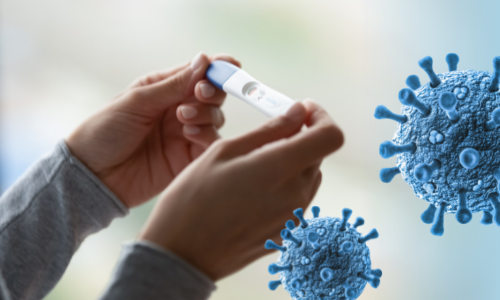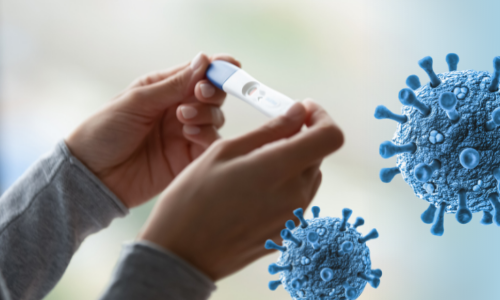


Autoimmune diseases are certain conditions in which the body’s immune system attacks the healthy cells and tissues, perceiving them as foreign or abnormal. Instead of attacking any harmful foreign bodies, the immune system starts attacking healthy tissues by creating antibodies against them.
Having an autoimmune condition can be a big cause of fertility issues among women and men. This is because the immune system is critical for the optimal functioning of the body, including the reproductive organs.
The immune system could be one of the causes of infertility due to its important participation during the process of embryo implantation in the uterus as well as the development of a pregnancy.
Having an autoimmune disease (lupus, rheumatoid arthritis, or Type I diabetes) generally increases your risk for infertility. Such conditions can also affect your ovaries, reducing the ovarian reserve or the number of remaining eggs in the ovaries. This can cause early menopause and infertility.
Women can have issues when it comes to the implantation of embryos. The normally-functioning immune system will perceive the embryo as a foreign body initially. But later, the mother’s immune system starts protecting the embryo from attack by other foreign bodies. This is not the case among women with autoimmune diseases. The immune system fails to recognize the embryo and starts attacking it, causing frequent miscarriages.
A strong, balanced immune system is vital in pregnancy as it helps the uterus accept and nurture the embryo. Your immune system is responsible for triggering certain blood vessels necessary for creating and growing the placenta to facilitate the healthy development of your baby. In addition to increasing your risk for infection and disease, a weakened immune system may not be able to support a pregnancy.
Another way in which autoimmunity can affect the fetus is by passive transfer of an antibody that has pathogenic effects. Examples include neonatal thyrotoxicosis, neonatal lupus, and neonatal myasthenia gravis. All improve as the level of maternal antibody declines. Women with SLE need screening for particular antibodies which can cause fetal heart block and heart failure.
Also, a man may have antisperm antibodies, these attack and destroy sperm, which can be a cause of fertility issues Thus, pregnancy does not occur.
If you are unable to conceive for a long time, and if you are struggling with infertility or recurrent miscarriage, you may need to be evaluated for some autoimmune diseases:
1- Thyroid disease.
2- Decreased ovarian reserve.
3- Antiphospholipid Antibody Syndrome (APLAS).
4- Rheumatoid arthritis.
5- Systemic lupus erythematosus.
6- Anti-sperm antibodies.

How Immune Problems in Infertility Are Treated?
It depends on the case and type of disorder. If you are diagnosed with an autoimmune disease, treatment of the specific disease should be started. Sometimes getting the autoimmune disease under control can improve fertility. In other situations, additional fertility treatment may be required to improve the chance of pregnancy and/or lower the risk of miscarriage. Controlling the symptoms of autoimmune diseases can increase the chances of successful pregnancies.
For those who aren’t aware of any immune problems, yet are experiencing infertility or recurrent miscarriage, a diagnosis is made after testing. Testing for immune problems in infertility isn’t routine and usually occurs only in cases of recurrent loss of pregnancy, or multiple failed rounds of IVF in which the embryos have been found to be viable and of good quality but pregnancy does not result. In the case of true unexplained infertility, your physician will also test for immune disorders.
Treatment for infertility related to immune disorders is not a one-size-fits-all proposition and will be tailored to suit your specific needs. In most cases, IVF and closely monitoring the pregnancy will result in a successful outcome.